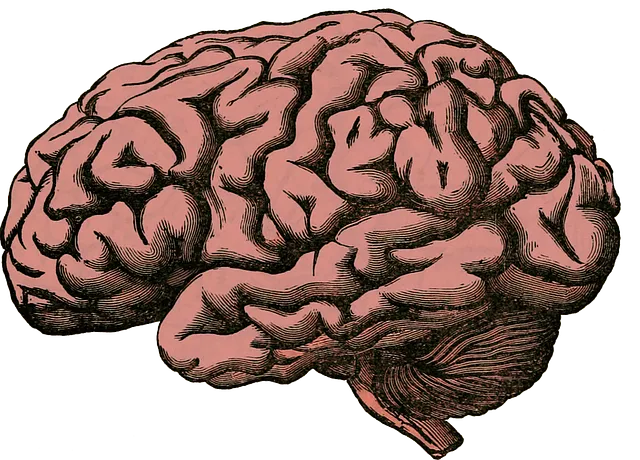The Kaiser Permanente mental health department in Parker is a leader in accurate mental illness diagnoses and accessible support through its dedicated phone line. They combine educational initiatives like the Mental Wellness Podcast Series with proactive strategies focusing on depression prevention and self-care to empower individuals. Their innovative diagnostic tools, such as the Parker Method, enhance evaluation accuracy. The department's comprehensive training programs and patient-centric approaches ensure healthcare professionals are well-equipped to provide compassionate care. By encouraging personalized symptom sharing and integrating self-care tools, they revolutionize diagnoses and offer effective Anxiety Relief, making mental health services more accessible via the Kaiser Permanente mental health department phone number Parker.
Mental illness diagnosis accuracy is a critical aspect of patient care, yet remains challenging. This article explores efforts to enhance diagnosis precision in mental health, focusing on strategies employed by industry leaders like Kaiser Permanente’s Mental Health Department. We delve into innovative tools such as the Parker Method and highlight training initiatives aimed at healthcare professionals. Additionally, we discuss patient-centric approaches, underscoring the importance of personalized care in improving diagnosis accuracy, exemplified by Kaiser Permanente’s commitment to mental health wellness through resources like their department phone number.
- Understanding the Imperative for Diagnosis Accuracy in Mental Health
- The Role of Kaiser Permanente's Mental Health Department: A Case Study
- Enhancing Diagnostic Tools and Techniques: The Parker Method
- Training and Education Initiatives for Healthcare Professionals
- Patient-Centric Approaches to Improve Diagnosis Accuracy
Understanding the Imperative for Diagnosis Accuracy in Mental Health

Accurate mental illness diagnoses are paramount for effective treatment and recovery. Unfortunately, misdiagnosis rates remain alarmingly high within the mental health landscape. The Kaiser Permanente mental health department phone number serves as a vital resource, offering guidance and support to individuals seeking clarity and care. This is particularly crucial considering the far-reaching impacts of inaccurate diagnoses, including inappropriate treatments, prolonged suffering, and even harm to patients’ overall mental wellness.
Efforts to enhance diagnosis accuracy are multifaceted. The Mental Wellness Podcast Series produced by Parker, for instance, leverages educational content to demystify mental health conditions and promote early intervention. Additionally, initiatives focusing on Depression Prevention and Self-Care Routine Development empower individuals with tools to recognize symptoms and seek appropriate help. These proactive strategies collectively contribute to a more nuanced understanding of mental illness, ultimately fostering better outcomes for those navigating complex emotional challenges.
The Role of Kaiser Permanente's Mental Health Department: A Case Study

The Kaiser Permanente Mental Health Department has been at the forefront of revolutionizing mental health care in the Parker region. With a dedicated team of professionals, they strive to enhance diagnosis accuracy and overall patient outcomes. Through their comprehensive approach, they offer not just treatment but a supportive ecosystem for individuals seeking help.
One notable strategy involves a multi-faceted Community Outreach Program that targets underserved populations. This initiative aims to improve self-esteem and stress management by providing accessible resources and education. By integrating these programs, the Mental Health Department ensures that mental health services are not only available but also tailored to meet the unique needs of diverse communities. Their efforts have significantly contributed to breaking down barriers and promoting early intervention, ultimately improving diagnosis accuracy and patient satisfaction.
Enhancing Diagnostic Tools and Techniques: The Parker Method

The Kaiser Permanente mental health department has been at the forefront of enhancing diagnostic tools and techniques, one such notable method is the Parker. This innovative approach streamlines the evaluation process, improving accuracy rates significantly. By integrating evidence-based assessments, the Parker Method ensures a comprehensive understanding of an individual’s mental health landscape. It delves into various aspects, including stress management and conflict resolution techniques, to provide a nuanced picture that goes beyond surface-level symptoms.
This method has proven particularly effective in navigating complex cases where traditional diagnostic methods may falter. By fostering a deeper exploration of mental wellness, the Parker allows for personalized treatment plans, catering to each patient’s unique needs. With its precision and adaptability, this technique promises to revolutionize mental health care, making it more efficient and effective, as evidenced by the successful implementation within Kaiser Permanente’s services.
Training and Education Initiatives for Healthcare Professionals

The Kaiser Permanente mental health department has been at the forefront of innovation in diagnosis accuracy, with a significant focus on training and education initiatives for healthcare professionals. Their phone number, readily accessible to the public, serves as a beacon for those seeking support, especially in Parker, where their services are renowned. These programs aim to enhance clinical skills and knowledge, ensuring mental health professionals are well-equipped to handle complex cases. Through interactive workshops and ongoing training sessions, they cover a wide range of topics, from recognizing subtle symptoms of common disorders like anxiety and depression to understanding the intricacies of trauma support services.
The department’s commitment extends to promoting evidence-based practices and fostering an environment that encourages open dialogue about mental health challenges. Their efforts include implementing Social Skills Training programs to improve communication and interpersonal relationships, which are vital components in effective therapy. By investing in these initiatives, Kaiser Permanente strives to not only improve diagnosis accuracy but also to offer compassionate and comprehensive care, ensuring individuals receive the appropriate Anxiety Relief measures tailored to their unique needs.
Patient-Centric Approaches to Improve Diagnosis Accuracy

Patient-centric approaches are transforming the way mental illness diagnoses are made, focusing on empowering individuals to take an active role in their journey towards healing. One such method is through direct communication and collaboration with patients, encouraging them to share their unique experiences and symptoms. For instance, Kaiser Permanente’s mental health department offers phone numbers where individuals can access personalized guidance, fostering a sense of support and trust. This patient-provider partnership ensures that diagnosis criteria are tailored to each person’s specific needs.
By integrating tools like self-care routines and journaling exercises, patients gain practical skills for managing their mental wellness. Encouraging individuals to track their symptoms, emotions, and triggers in a Mental Wellness Journaling Exercise can provide valuable insights for both patients and healthcare providers. This proactive approach not only improves diagnosis accuracy but also equips folks with Anxiety Relief strategies and empowers them to take charge of their mental health, fostering a sense of resilience and self-awareness.
Mental illness diagnosis accuracy is a multifaceted challenge that requires innovative solutions. The case study of Kaiser Permanente’s Mental Health Department demonstrates how dedicated organizations can significantly improve outcomes. Implementing evidence-based techniques, such as the Parker Method, along with robust training and patient-centric approaches, proves crucial in enhancing diagnostic accuracy. By leveraging resources like the Kaiser Permanente mental health department phone number and adopting best practices, healthcare professionals can better support individuals seeking treatment. These efforts collectively contribute to a more effective and compassionate mental healthcare system.






